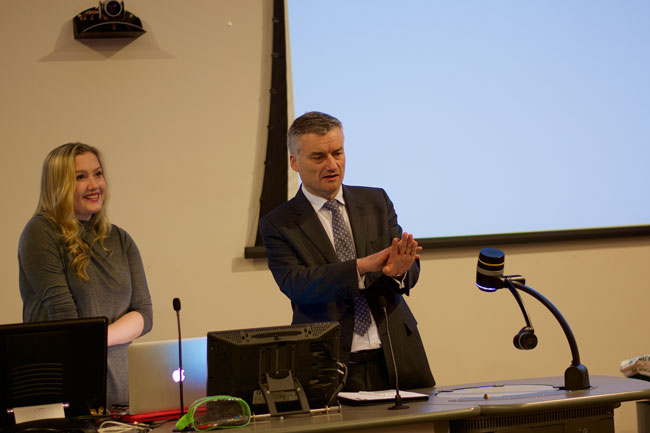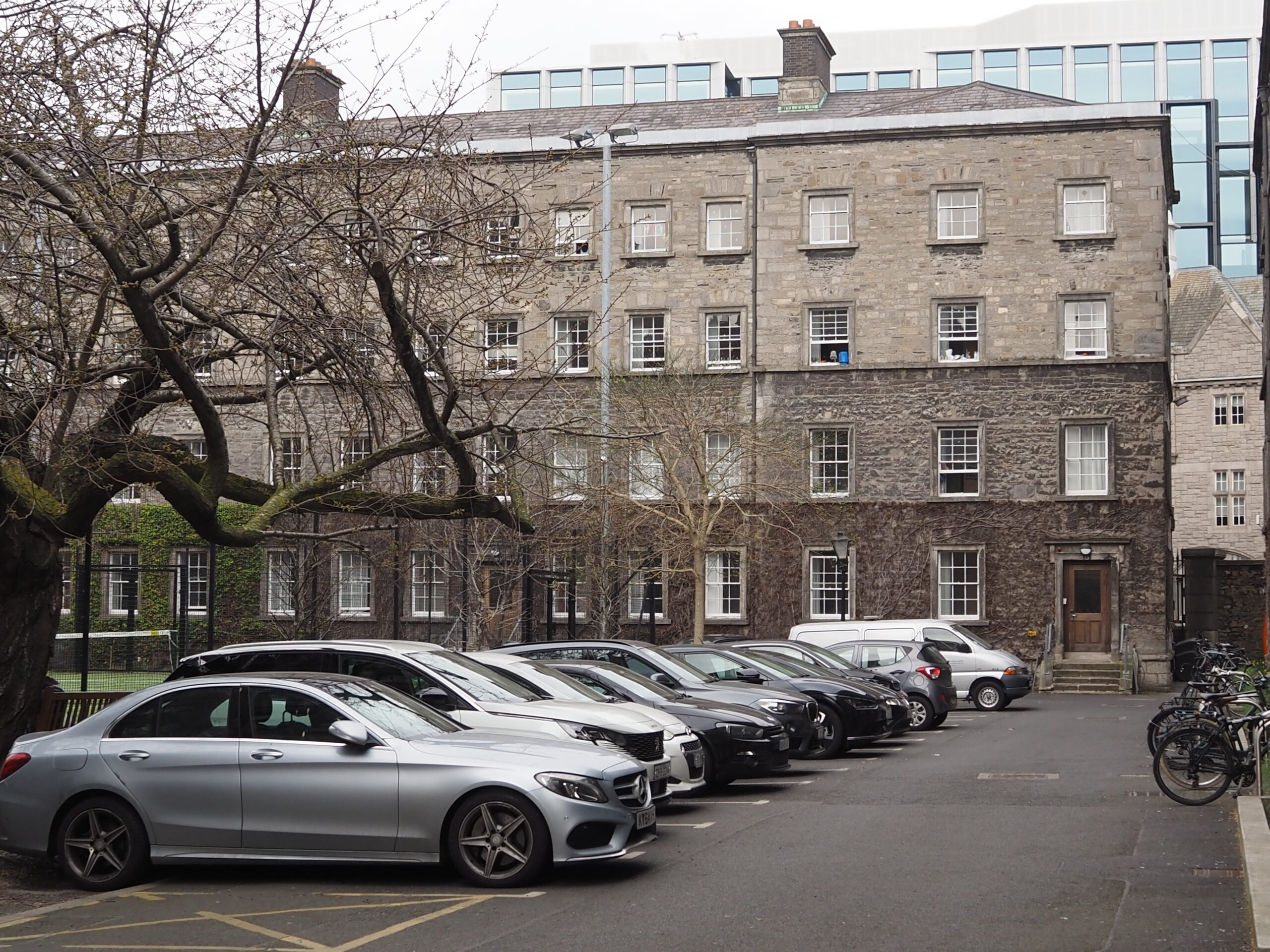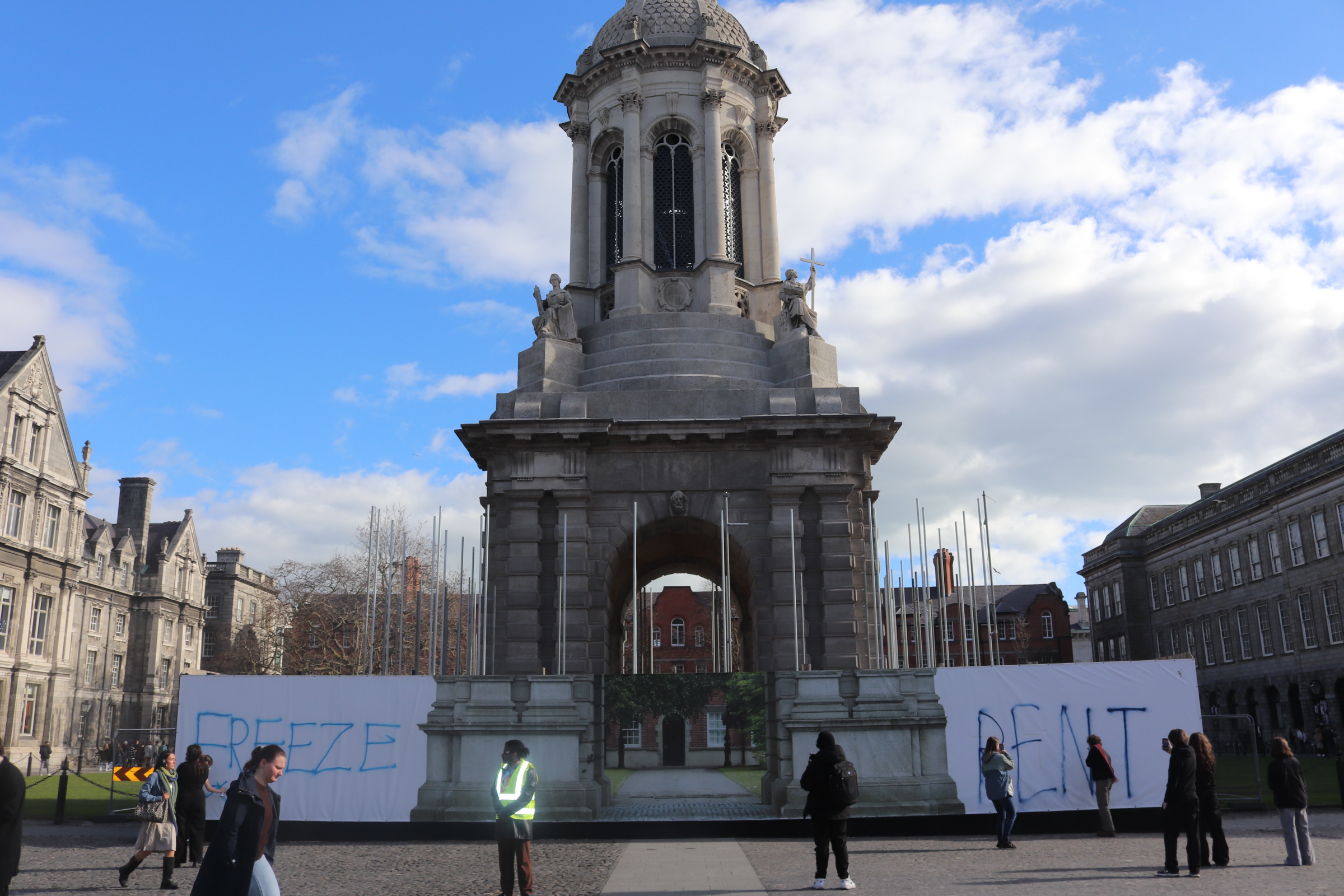Provost Patrick Prendergast took questions from students at Trinity College Dublin Students’ Union (TCDSU) council this evening on everything from counselling to staff contracts, following an address that emphasised the importance of unity between universities and students amid a higher education funding crisis.
The crisis dominated discussion at the council meeting. Prendergast, clearly exasperated, described the higher education funding crisis, which has seen state funding of Irish universities fall dramatically over the last five years, as a “groundhog day issue”.
Students and staff were also facing the same crisis, he said, and expressed hope that 2017 would be the year that the issue of higher education funding would be resolved. “I didn’t think I’d be speaking five years later about the same subject”, he said. Prendergast emphasised that this was a crisis that affected staff and students equally, telling council that “we are all in this together as a College”.
Last summer, the government’s higher education funding working group set out three options for the future funding of higher education – the abolition of the student contribution and the creation of a predominantly state-funded system, the continuation of the current student contribution charge coupled with increased state investment, and the introduction of an income-contingent loan system. Since then, Prendergast has repeatedly warned of the dangers of politicians “kicking the can down the road” on the issue.
Commercialisation was also one of the themes of the evening, with the Prendergast focusing on the growing emphasis the alternative, non-exchequer sources of funding. Student questions also focused on commercialisation, student spaces and higher education funding. One of the first questions was on the Irish University Association (IUA)’s support for an income-contingent loan scheme.
A motion is set to be brought to this evening’s council meeting, calling on the union to support publicly funded education and oppose loan schemes and Prendergast has in the past expressed support for an income-contingent loan scheme. Loans, he said, were “contingent on the fact that you only pay it back later in life when and if you’re making money”. Such an approach can be more equitable than the current status quo or other approaches, he said.
“You don’t have to necessarily get rid of the grant system to bring in the loan system”, he said.
Expressing regret at the global decline of state funding in higher education worldwide, he warned that perhaps the new trend is a sign of the return to a “new normal” of little state support for universities and colleges.
Many of Prendergast’s answers to students returned again and again to the lack of government funding. In response to a request for more money for student counselling services, Prendergast admitted his hands were largely tied by the lack of government funding: “The state does not pay us to deliver the kind of services you want.”
Prendergast repeated many of the themes of his speech last year to staff, which marked the mid-point of his term as leader of the college. In that address he claimed that “fees, philanthropy and commercial activities” would have to be the future of the university.
In an interview with The University Times last year, Prendergast said that Trinity has “been operating on a plan B for a long time”, referencing the alternative revenue streams the College has been focusing on, such as commercialisation and philanthropy. Trinity, he said, would be launching a philanthropy campaign next year, the first formal campaign in the university’s history.
The Provost this year has enjoyed a largely good relationship with TCDSU so far this year. Last September, the College Board approved students missing lectures to attend the Union of Students in Ireland (USI)’s national demonstration. Ahead of the march, which took place in October, the Vice-Provost, Prof Chris Morash, addressed students in Front Square, praised their support for higher education. Speaking to The University Times following the march, Prendergast described this speech as “radical”.
Prendergast opened his talk with a discussion of the Trinity Education Project, the college-wide revolution of Trinity’s undergraduate curriculum. Prendergast spoke of the“ambitious, university-wide” Trinity Education Project, which is currently being developed by Trinity and will, Prendergast said, help students “manage the complex challenges of an ever-changing environment”. As part of the project, last year University Council approved the introduction of Christmas exams for students, pending approval by the university fellows.
Responding to numerous questions from students, Prendergast stated that the Trinity Education Project is “a very big change” to how the College works, but said he was enthusiastic about its progress. Currently in the implementation stage, the Provost believes the project is moving forward well, noting that undergraduate education is “our most fundamental activity”.
Areas of concentration include increased continuous assessments, project work and the semesterisation of exams. These, along with the graduate attributes outlined by the Trinity Education Project, were all major features of his initial address to students. Prendergast stated his hope that,, through Trinity Education Project, students will be able to have an “in-depth experience of a particular subject” while also leaving them with more time to dedicate to extracurricular and co-curricular activities.
His discussion with students ended on a combative note, with Prendergast batting off questions on the mistreatment of support and service staff. Questioning some of the “post-truth” claims made against him by the questioner, Prendergast said this was the first time such issues had been raised with him.
Jake O’Donnell, Morgan Clarke, Brónagh Kennedy, Arianna Schardt and Kathleen McNamee contributed reporting to this piece.







